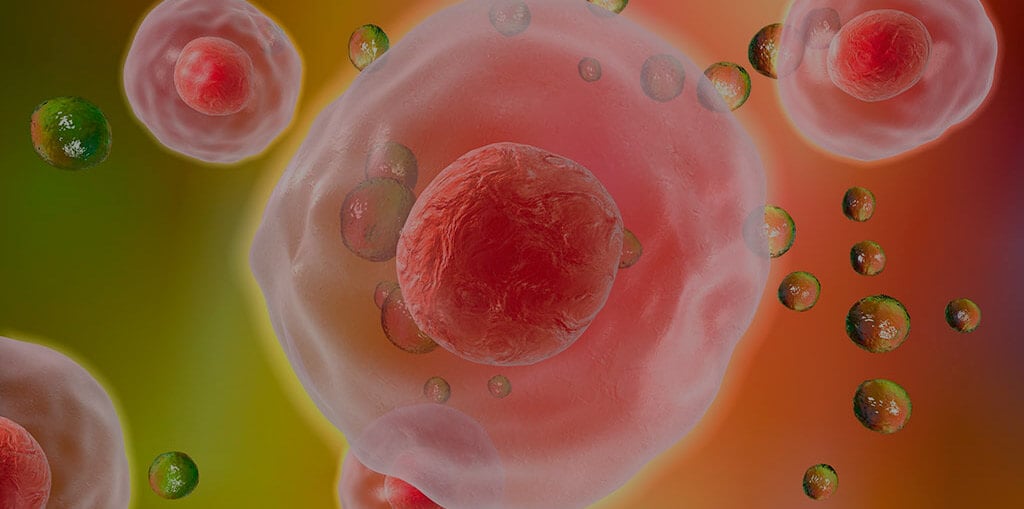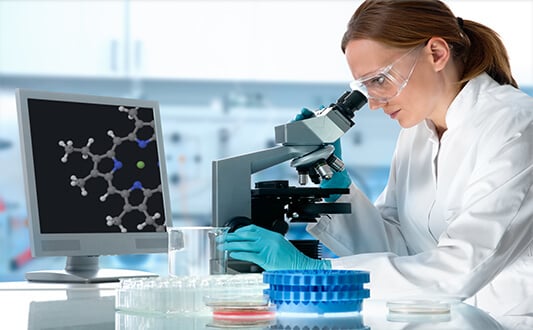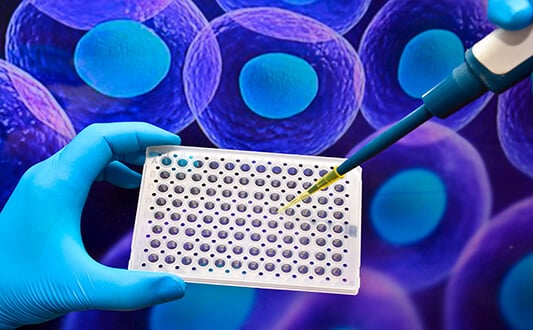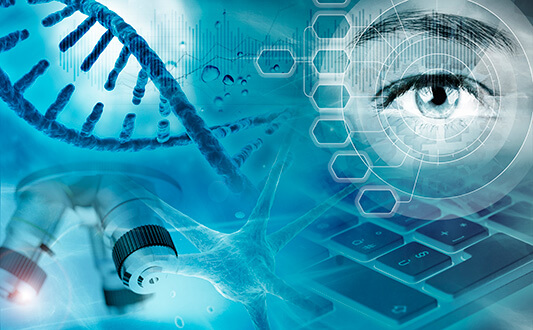Step into the clinical practice
The reprogramming of differentiated cells into stem cells and some other applications, opened the door to a new age of regenerative medicine. Regulatory, medical, and aesthetic aspects are on the agenda.
Both in theory and reality, a controlled cultivation of the embryonic and pluripotent stem cells from the stratified (dissected) cells has long been considered to be impossible. Nevertheless, researchers were able to achieve this process in 2006 for the first time, using the fibroblasts of mice. The following year brought the chance to carry out the same experiment with human cells.
Japanese stem cell researcher Shinya Yamanaka was awarded the Nobel Prize in the field of medicine in 2012 for his method of producing the so-called induced pluripotent stem cells (iPSC).
Ten years have passed since the discovery. Today, it’s not an option to even imagine stem cell research without iPSC being used for the development of the models of the cell’s diseases, or testing the systems while creating new medications. Besides, iPSC have important therapeutic potential in the development of new treatment techniques in regenerative medicine. We expect autologous iPSC and the cells replicated from them, to improve the immune and medical transplant compatibility. iPSC-drugs also give the chance to avoid or eliminate the usual consequences of an allogeneic tissue transplantation.
That is why the importance of iPSC discovery for the research and medical field is being specifically emphasized by academics and politicians. It is reflected in the EU’s support programs at a German federal level and is on the level of federal provinces. An increase in the number of publications and patents, and the first clinical study, prove the importance of iPSC discovery.
Booking Health offers the following stem cell treatment programs:
- Autism
- Chronic pancreatitis
- Diabetes melitus
- Diabetic neuropathy
- Diabetic retinopathy
- Dilated and ischemic cardiomyopathy
- Erectile dysfunction (impotence)
- Immunodeficiency disorders
- Liver cirrhosis (fibrosis)
- Multiple sclerosis
- Oncological diseases
- Optic nerve atrophy
- Parkinsons disease
- Pulmonary fibrosis
- Stroke
Dr. Siebenhüner on Advanced Stem Cell Treatment: From Joint Recovery to Brain Regeneration
Existing issues of regulatory, medical, and aesthetic character
Legal, medical, and aesthetic debates on iPSC by this time had largely drifted around the field of basic research. Together with that, the regulatory, medical, and aesthetic terms of iPSC medications administration did not draw enough attention before this therapy had been started. Only eight years later, after the method of iPSC-allocation was developed, the research program for the treatment of age-related macular degeneration (AMD) was approved in Japan in 2014. A layer of retinal pigment epithelium cells was transplanted to a woman. The layer was derived from the woman’s own skin cells and iPSC. Meanwhile, complications were not observed.
But, the research was stopped in early 2015, as the cells prepared for transplantation were identified with a cancer-causing mutation. Nevertheless, the study had to be continued. Clinical studies based on iPSC are going to be carried out on Parkinson’s disease treatment techniques.
Legal status: medications for the new therapies
When talking about the research, the question from a legal point of view is “Which are the medications being considered based on iPSC?”. Here, from a legal point of view, we are talking about advanced therapy medicinal products (ATMP), according to the European Directive on ATMP. The Directive on ATMP gives a definition of the somatic cell and genetic treatment medications, the tissue products processed via biotechnology, and supervises their proper use.
Inside the ATMP group, iPSC based therapy products represent the “tissue products after the biotech processing”. IPSC couldn’t possibly be produced in big clinical volumes, “foot-print-free” until now, i.e. without any residual genetically confirmed changes in the reprogrammed cells.
Therefore, genetic products should also be considered in terms of regulatory, medical, and aesthetical assessment of iPSC-medications, based on the applicable reprogramming methods. Specifically, alternate recommendations should be considered to ensure reliability, quality, and effectiveness, which will be established on the different risk potential compared to other ATMP.
Not every genetically modified iPSC will be an agent for gene therapy. Moreover, iPSC therapy should make it possible to create substitutes for the cells and tissues that suffered from degenerative effects as a result of an accident or aging. Meanwhile, the combination of iPSC-technology and gene therapy should have been successfully evaluated on animal models or human cells more than once (e.g. for sickle cell anemia or Parkinson’s disease). In the future it will be necessary to have such treatment options and the latest achievements in “gene medication” for regulatory, medical, and aesthetical assessment.
However, the evolution of the treatment based on human embryonic stem cells has an almost ten-year time benefit compared to iPSC. In recent years, embryonic stem cell research has reached the level of clinical studies in other countries. Therapy on the basis of stem cells remains, though, allogeneic treatment could be further connected to immune and medical treatment. Besides this, the theme of deriving and using human embryonic cells has aesthetic dialogues around it. This has already led to the banned patenting of such inventions in Europe. Considering its up-to-date legal status, it has to be stated that the application of human embryonic stem cells is also prohibited by pharmaceutical law, among other issues.
Ethical suitability: needs to be, but less criticizing
It is not clear yet, whether a treatment on the basis of human embryonic stem cells will ensure their practical implementation or not. Here, iPSC discovery seems to be much more promising for therapeutic transplantation. Since iPSCare was derived from the cells of people who were already born, the discussion about the moral and, finally, legal statuses of using human embryos compared to iPS-cells doesn’t matter.
Individual body cells (pluripotent or produced) are legally accounted for as material, not human embryos. Therefore, the iPS-cells’ development and application are basically possible for the creation of new therapies and are within the clinical research framework. Necessary ethical evaluation can be seen in section 40, paragraph 1, second half; section 42, paragraph 1 of Gesetz über den Verkehr mit Arzneimitteln (Arzneimittelgesetz - AMG) as well as in the other clinical studies by, Commission on the Ethics, which is responsible for the verification according to the legislation of federal German lands.
Altogether, there are not any certain legal remarks existing for the clinical research on the use of cell-based medicines. Hence, §40 ff. of Arzneimittelgesetz (Medicine Act) is the one to regulate and put the frames for the clinical studies involving the use of iPS-cells or their derivatives on. According to §40, paragraph 1 and §77, paragraph 2 of the Medicine Act (Arzneimittelgesetz), Paul Ehrlich Institut (PEI) is responsible for permitting cell-based clinical studies. However, special subsidiary legislations and recommendations by the European Medicines Agency (EMA) must be taken into account for stem cell based drugs verification.
Requirement of the specific information and documentation
While deriving reprogrammed body cells, it is necessary to take into account not only the legal regulations about medicines of §20 b in the Medicines Act (Arzneimittelgesetz), but also to consider the regulations by Transplantation Act - Gesetz über die Spende, Entnahme und Übertragung von Organen und Geweben (Transplantationsgesetz or TPG), and by regulation on tissues of TPG (TPG-GewV) - Verordnung über die Anforderungen an Qualität und Sicherheit der Entnahme von Geweben und deren Übertragung nach dem Transplantationsgesetz, with their legal duties, especially with regard to the clarification or vigilance of cells and tissues. Eligibility of TPG appears from §1, paragraph 2, half 1 of TPG.
According to the law, donorship (donation) and the sampling of human tissues for their further transplantation, as well as tissue transfer and the preparation of these activities, are subject to the Transplantation Law (TPG). Section 8, paragraph № 1 of TPG, regulates the process of somatic cell biopsy for iPS-cells derivation, their usage, volume, and the obligatory fixing of information on autologous iPSC-therapeutic drugs. By their nature, they do not differ from the interpretations of other (transplantation) interventions. This can be explained by the born-people nature of the somatic cells used for the pluripotential cell production. Cells are not totipotential and are able to develop independently with corresponding environmental conditions and not like a human embryo. Following on, they cannot have their own rights, moral, and/or legal status as the born human does.
The regulatory requirements for the manufacturing of therapeutic agents based on iPSC differ from the requirements for the manufacturing of other drugs for new treatments (ATMP). When talking about iPSC based drugs, we mainly mean the ATMP (advanced therapy medicinal products). Therefore, legal authorization for medicinal products according to §13, paragraph 1 of the Medicines Act (AMG), will always be obligatory to produce iPS-based therapeutic products, due to the actual law. Such products should be produced according to the GMP standard.
Specific requirements on launching
The launching process of iPSC-based therapeutic products is defined either by EU centralized admissions requirements or by the provisions on the so-called “hospital exception”, which is only valid in Germany. If the production of the mentioned medicine is elective and industrial, an EU permit should be received after filing an application to the European Medicines Agency (EMA). However, if stem cell treatment in Germany deals with the individually produced drugs for a specific patient, the application for the permit should be filed to the Paul Ehrlich Institut.
Regenerative medicine stepped into the new epoch thanks to stem cell programming and their wide variety of applications. After the debates on the use of this technique in the fundamental area, it still remains to be figured out whether the existing regulatory, medical, and ethic frames are able to adequately cover the iPS-cells medical practice. At the same time, the already existing iPS-technology developments represented by transdifferentiation should also be taken into account. Transdifferentiation allows for skipping the iPS-cells and creating another cell type, directly out of differentiated cells. Finally, an in-vivo reprogramming technique is being successfully applied in animal models.
Induced pluripotent (pluripotential) stem cells (iPSC)
It was long believed that cells are able to develop in a single direction – from a stem cell to a differentiated cell. Thus, stem cell research had no alternative to the ethically argued, human embryonic stem cells.
In 2006, Japanese doctor Shinya Yamanaka from the Kyoto University, broke new ground in medical history. Together with his team, he discovered a new way of deriving the induced pluripotent stem cells (iPSC), and in 2012, he received the Nobel Prize in the field of medicine.
Yamanaka derived the fibroblasts from mice skin with the help of retroviral transduction. Then, he activated four transcriptional factors 0ct3/4, Sox2, c-Myc, and Klf4 in such a way that the reprogrammed cells gained the form and peculiarities of the embryonic stem cells. He gave a name to the produced cells: “induced pluripotent stem cells” (iPSC).
Further research proved that iPS-cells are able to differentiate into all cell types of the adult body, just like embryonic stem cells. In 2007, Yamanaka and other groups of scientists successfully performed experiments on human cells. Today, the researchers use the iPS-cell technique to derive cells of patients suffering from genetically conditioned diseases that are able to differentiate into all types of cells. Special iPS-cells are designed to help in the development and testing of new drugs for Parkinson’s disease or amyotrophic lateral sclerosis (ALS) treatment.
Progress Through Stem Cells: Sofia's Vision Treatment in Germany
Where is cell therapy used?
So far, induced pluripotent stem cells have found limited use in medicine. However, there are other types of stem cells, such as mesenchymal cells, that have been used successfully in the developed world for a long time. All the benefits of cell therapy are available at the Clinic for Advanced Biological Medicine in Frankfurt am Main, Germany. Here, the body's regenerative abilities are maximized during the treatment process. Stem cells are used to restore damaged human organs and tissues.
Booking Health has been organizing treatment abroad for many years. If you wish to undergo stem cell therapy in Germany, we will help you to choose a suitable clinic and fully organize your trip for treatment. On the Booking Health website you can also check the average cost of treatment.When travelling abroad, you will receive a full package of services:
- Visa application assistance
- Hotel and flight bookings
- Translation of medical documents into German
- Providing an interpreter in Germany
- Transfer from the airport to the clinic and back
By choosing Booking Health, you will receive a number of benefits, namely
- Reduced waiting time for a doctor's appointment and start of treatment
- Saving up to 70% (we have a direct contract with the Clinic of Advanced Biological Medicine)
- Insurance covering all unforeseen medical expenses during the entire treatment and for 4 years after its completion
- Consultations with a doctor without additional payment within 3 months after the completion of the therapeutic program
To take advantage of Booking Health, you need to apply on the website. After reviewing your medical records, our specialist will contact you to discuss the details.
Article menu:
- Step into the clinical practice
- Existing issues of regulatory, medical, and aesthetic character
- Legal status: medications for the new therapies
- Ethical suitability: needs to be, but less criticizing
- Requirement of the specific information and documentation
- Specific requirements on launching
- Induced pluripotent (pluripotential) stem cells (iPSC)
- Where is cell therapy used?
Don't know where to start?
Contact Booking Health






